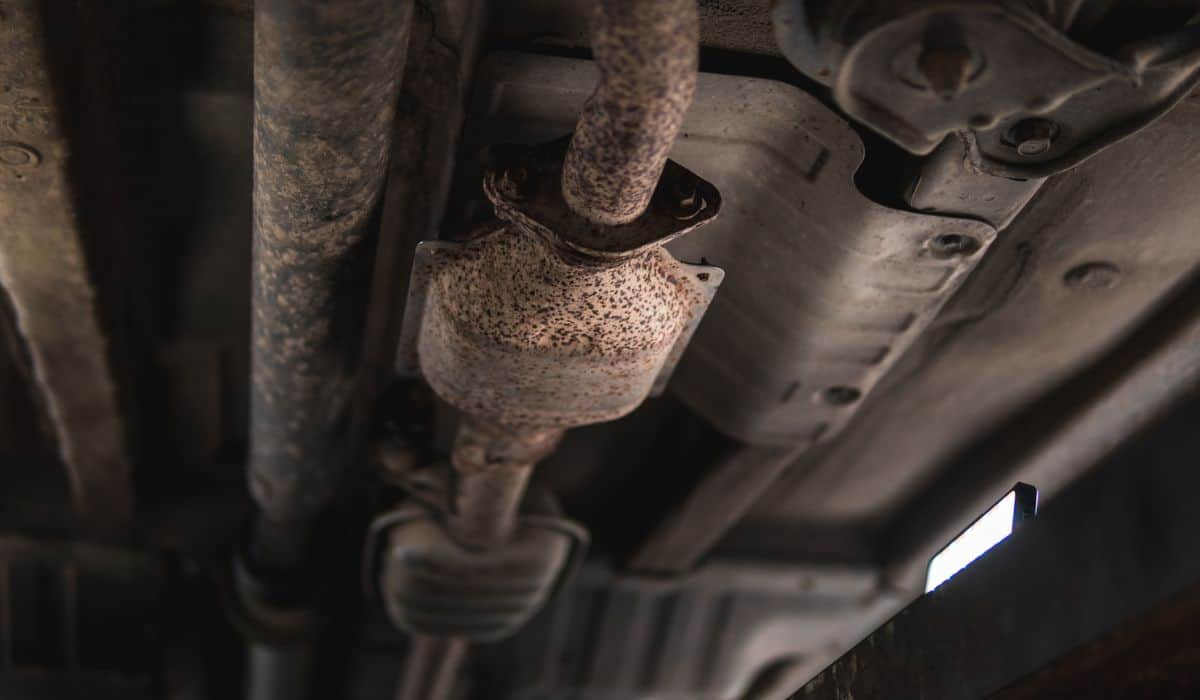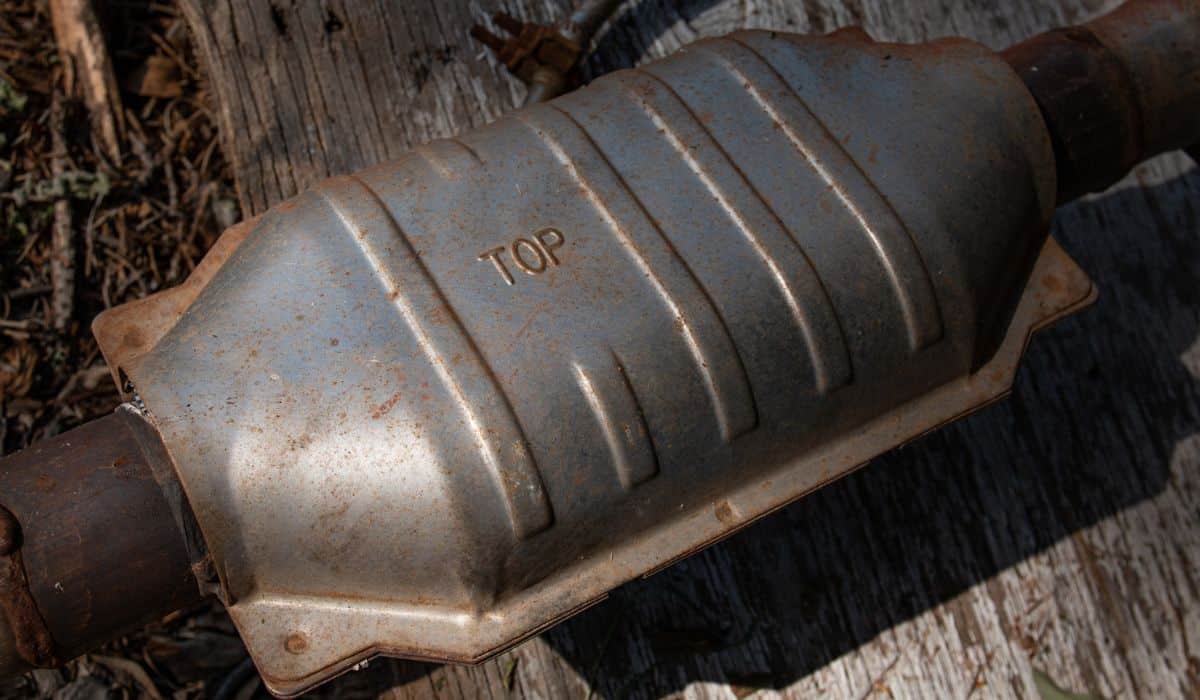Catalytic Converter: To Replace Or Not To Replace?
The catalytic converter is an integral component of any vehicle’s emission control system — and if it’s experiencing issues, you should act quickly. But do you need to completely replace a faulty catalytic converter?

Depending on the exact situation, replacing your car’s catalytic converter can cost between $900 and $2,500. Since the catalytic converter manages the harmful emissions from internal combustion engines, you may be required to depending on your local laws. Typical they last as long as the vehicle.
Don’t panic if you notice or suspect problems with your catalytic converter. Although it can be daunting, it’s best to resolve these issues as soon as possible. We cover everything you need to know in the article below. Read on for more information.
What Is the Purpose of a Catalytic Converter?
The catalytic converter is part of a vehicle’s emission control system, and it’s crucial for managing harmful emissions from a car.
The catalytic converter is typically located between the engine’s exhaust manifold and the muffler. It’s a metal canister that looks similar to a muffler but works much differently.
The case is made of stainless steel to resist corrosion and high temperatures. On the interior, there’s a ceramic honeycomb shape that’s coated in precious metals like platinum, palladium, and rhodium.
Exhaust gas from the engine moves through the catalytic converter. Residual unburned gas from the combustion process reacts with the precious metals at high temperatures. This is the “catalytic” process that “converts” harmful chemicals, like carbon monoxide, into non-polluting substances.
Suggested Reading: Will A Clogged Catalytic Converter Cause Loss Of Power?
What Happens if I Don’t Replace My Catalytic Converter?
Generally speaking, your check engine light will appear if your catalytic converter isn’t filtering exhaust fumes properly.
It’s not recommended to drive with a check engine light on. Your engine might have trouble starting, and if the catalytic converter becomes completely blocked, the engine won’t turn on at all.
Your vehicle can also develop some of the following problems if you don’t replace a faulty catalytic converter.
Issue 1: Constant Check Engine Light
The check engine light is typically the first warning sign of issues with the engine or the catalytic converter. The light may come on due to the engine misfiring or running rich with harmful chemicals.
The check engine light can also be the result of faulty spark plugs, bad ignition coils, clogged fuel injectors, or poor engine sensors.
The catalytic converter can also become damaged due to engine issues, causing the oxygen sensors to notify the electronic control unit (ECU) and heighten the issue. Check engine lights can also cause vehicles to enter a ‘safety mode’ to protect the engine from more damage.
Unless you resolve the engine and catalytic converter problems, your vehicle won’t perform optimally.
Issue 2: Your Engine Constantly Runs Lean
Damage to the catalytic converter can be caused by an engine that’s running rich. Your vehicle’s ECU may compensate for the faulty catalytic converter by reducing the amount of fuel in the fuel mixture.
Engines that run lean or use too little fuel may cut out or fail to start. Furthermore, these issues can damage the spark plugs if left untreated.
Issue 3: Exhaust Manifold Damage
Faulty and clogged catalytic converters may also damage the surrounding components from high temperatures. The exhaust manifold is typically located near the catalytic converter and can easily overheat.
High temperatures can cause the exhaust manifold to crack. Symptoms may include visible cracks with escaping smoke. You may notice a burning smell and noisy exhaust sounds.
Resolving this issue may require a replacement of the whole exhaust system.
Suggested Article: Can I replace my catalytic converter with a straight pipe?
How Can I Tell If Something Is Wrong With My Catalytic Converter?
Most catalytic converters last the entire lifespan of a vehicle, but there are exceptions to this rule. There are several tell-tale signs of a faulty catalytic converter and symptoms to look for.
Here are a few to keep in mind:
Poor Performance and Starting Issues
The interior ceramic honeycomb design of a catalytic converter can become damaged over time. Damage and deterioration can result from age, accidents, and other issues. Either way, the catalytic converter can become blocked and restrict the typical flow of gasses through the exhaust system.
This directly impacts the engine’s performance and can lead to the vehicle being unable to start. You may also see the following:
- Your vehicle lacks power
- Lackluster acceleration
- You have to accelerate harder for normal amounts of power
- Vehicle hesitation
- Vehicle misfiring
- Vehicle stalling
- Lower fuel efficiency
- The engine won’t start
Rattling Sounds Underneath Your Vehicle
If the interior components of a catalytic converter break, you may hear rattling sounds. The rattling noises can happen when you start the engine, when it’s running, or when you hit a bump in the road.
Rotten Egg Smell From the Exhaust
A vehicle’s combustion process causes the sulfur in the gasoline to become hydrogen sulfide gas, which can smell. The hydrogen sulfide is converted into an odorless substance with a working catalytic converter. Faulty catalytic converters can’t convert the hydrogen sulfide, so you’ll notice a disgusting, rotten egg-like smell.
You See the Check Engine Light
If the engine’s computer determines that the catalytic converter isn’t working correctly, the check engine light will appear on your dashboard.
The engine’s computer will also have a trouble code, which a mechanic can view to identify the issue.
You Can’t Pass the Emissions Test
A faulty catalytic converter can cause you to fail an emissions test. This is typically the result of a trouble code in the engine computer or an excess of unburned fuel in the exhaust system. Blocked catalytic converters typically lead to cars failing the smog test.
How Much Does It Cost to Replace a Catalytic Converter?

As is the case with almost any repair, the price can greatly vary depending on the issue, the vehicle, the mechanic, and more. The catalytic converter is located in a hard-to-reach area that also contains oxygen sensors, exhaust pipes, and mufflers. This can lead to higher costs or additional repairs.
That said, replacing a catalytic converter can cost anywhere between a few hundred dollars to well over two thousand. The average cost is typically between $900 and $2,500, depending on the situation.
It’s best to visit multiple well-respected mechanics and get several estimates to find the best price in your area.
Suggested Reading: How Much Is A Catalytic Converter Worth
Is It Possible to Fix a Catalytic Converter Without Replacing It?
Generally speaking, a faulty catalytic converter needs to be replaced. The honeycomb filter on the interior can become blocked, break apart, or melt together.
However, it’s possible to catch issues early on, before the catalytic converter cracks or fuses together. You can usually clean the blocked components to resolve the issue in these cases.
Permanent damage to the catalytic converter is typically due to blockages from excess fuel, leaking coolant, or engine oil from exhaust fumes. Leaving the unresolved issue causes the components to overheat and may lead to permanent vehicle damage.
Suggested Articles:
- New catalytic converter break-in period
- Can An Oil Change Affect Your Car’s Catalytic Converter?
- Can Seafoam Clean A Catalytic Converter?
- New catalytic converter smell
- Does catalytic converter affect fuel consumption
- What is the purpose of a catalytic converter?
- Rough Idle: Could A Clogged Catalytic Converter Be The Culprit?
